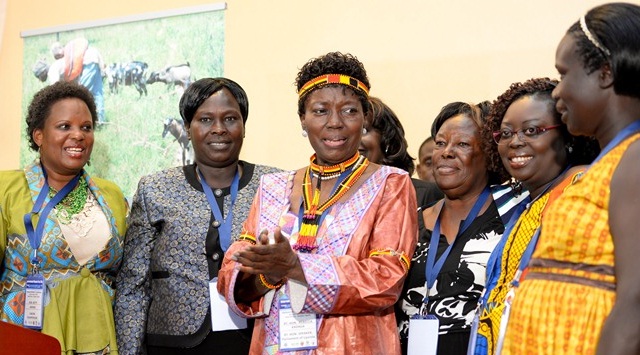
We have seen issues raised by women in parliament being sexualized. A whole chief whip was embarrassed in parliament when someone said she is exposing herself. Recently a Secretary General of the country’s biggest party was judged according to her sex and not her office. If such women can be judged using sexist language what about others!
Even if we have all these goods laws, if people are still held up in such beliefs nothing much can be yielded out of them.
What in your view is the biggest challenge facing a woman today?
If women are educated, they will have alternatives and will make informed choices and decisions. So if I was to invest, I would invest in quality education because with education you can attain a certain level of independence both economically and protecting rights. It may not be the magic bullet to protect a woman but it’s over and above marginalization.
What has been UWONET’s role in addressing obstacles that are challenging women?
As an institution that has been here for 25 years, we have been at the forefront of championing women rights particularly we started with ensuring that basic laws needed to protect women rights are available so in 1993 we stood to make our voices heard. Having known that most of the women especially in the village depend on land for their livelihood, we made sure women rights are represented in the Land Act of 1998.
It’s through our advocacy that the laws considering women’s participation were made and it’s an achievement because the law gives you the basic minimum. We have also created awareness telling women that there are laws to help them. Strategically, we have considered ways on how to get women in the public sphere because before even positions like Secretary for Women Affairs at local government were occupied by men. We made an effort to encourage women to move out of the domestic to the public sphere.
We also do a lot advocacy in health, education and economic empowerment through our awareness, training and skills development programmes.
It’s said to make an impact anywhere today you can’t rule out use of the internet. How are you using the web for the benefit of women?
Technology has its pros and cons but as UWONET we tend to use this to our advantage in spreading the positives and bringing to the fore the abuses happening in the communities. We condemn the use of IT for advancing abuse of women especially on social media through cropping pictures and exposing of women bodies. This is unacceptable that’s where we urge Uganda Communications Commission to do some work around protecting those victimized including protecting children.
The institution of marriage is facing tough times and women seem to be hit most. Why in your view has the Marriage bill failed to sail through parliament? Are there any loopholes?
The challenge is not because it’s a bad law but it has been viewed in context of what a wife should be according to individual beliefs. It’s unfortunate that even people who hold authority when it comes to protection of women, they put their cap of being patriarchal men and women. Some people looking at this bill for instance believe a wife is property because they paid bride price for her and therefore has no right to own property.
If you have listened to people who have spoken out on this bill, they’re not looking at it as a piece of law meant to protect a person close to them but If they blindfolded themselves and said this bill is protecting my daughter or my mother then it would have been passed a long time ago because no one wants their daughter to be thrown out of land they acquired with her husband when a marriage is dissolved. I encourage people to reread this bill and they should know that there is a marriage act and a divorce act already, the only thing the new amendments were doing was to remove sections that are not in conformity with the constitution and also considering emerging issues that were never put into account previously like for instance cohabitation in which a big category of people fall. The state has a responsibility of protecting its people irrespective of whether they are properly married or they are cohabiting.
 The Independent Uganda: You get the Truth we Pay the Price
The Independent Uganda: You get the Truth we Pay the Price



